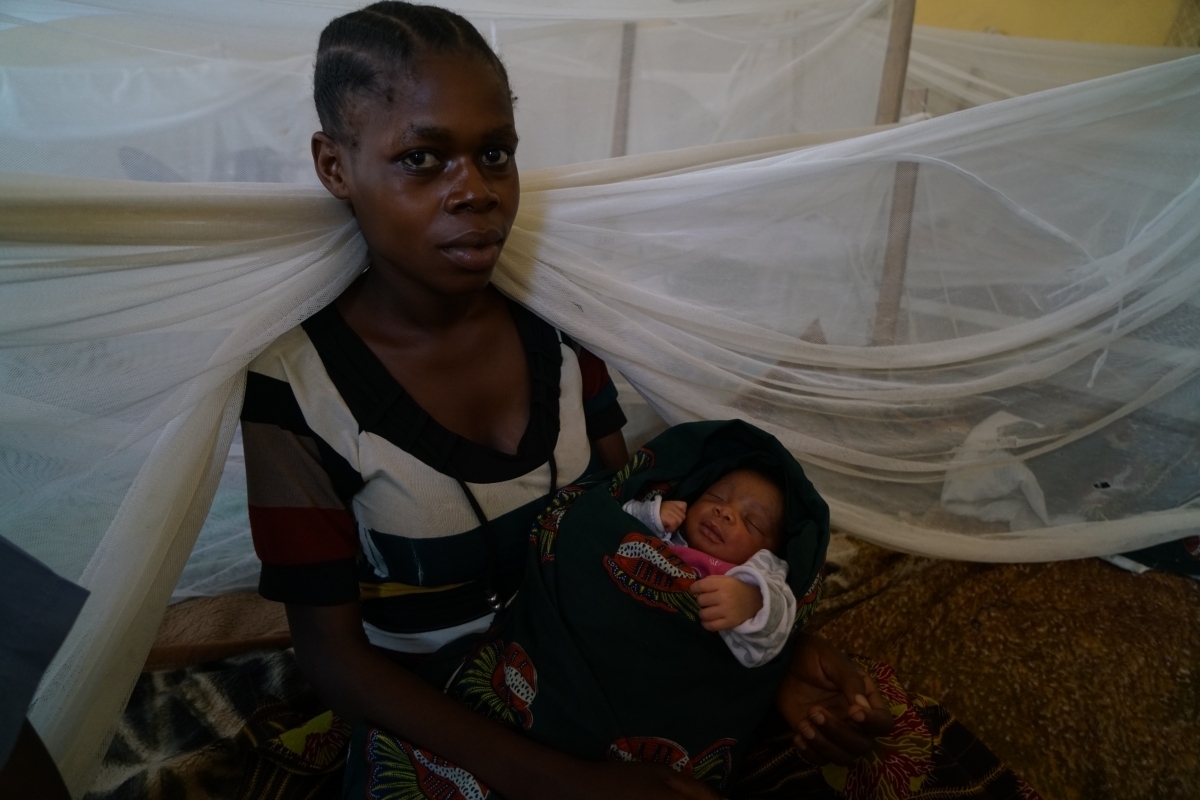In the Democratic Republic of the Congo (DRC), thousands of women suffer at the hands of militants, becoming victims of brutal acts of sexual violence. Dr. Denis Mukwege, founder of the Panzi Hospital and a gynecological surgeon, has dedicated his life to changing that. Having seen the devastating effects daily, Dr. Mukwege believes the international community should ban the use of sexual violence as a weapon of war – declaring it no different than the use of nuclear, chemical and biological weapons. He has provided physical, psychological and legal support to more than 50,000 women of all ages.
Dr. Denis Mukwege knew he wanted to deliver babies the moment he first saw a woman bleed to death after giving birth in a remote village, far from any hospital. Having a baby should be a happy occassion for families, a time to celebrate life – not death, he thought.
When war came to the Democratic Republic of the Congo (DRC), Dr. Mukwege’s work changed dramatically. Instead of helping pregnant women, he began treating women who had been completely destroyed – sexually, emotionally, spiritually.
“I had just started at Bukavu Hospital, near the Rwandan border,” he recalls of the early days of the war. “The first patient I saw didn’t come in for a caesarean birth or to deliver in a safe place. She came because she had been gang raped…She had been raped repeatedly, and then she had been shot....”
At first, Dr. Mukwege thought this patient was an unusual case. But three months later, he realized he had treated 45 patients with similar experiences. Before the war, he had never witnessed such horrific violence – women raped and tortured with sticks, fire, bayonets, or shot.

Today, the DRC is known as the “rape capital of the world.”
This moniker didn’t come from isolated incidents; it was inspired by acts of war. Since 1998, Congolese government and militia groups have fought against each other and against factions loyal to the neighboring Rwandan leadership, leaving the country in shambles. Although the war formally ended with a peace agreement almost a decade ago, the country remains embroiled in violent and deadly clashes, with more than 400,000 women reported raped in the 12-month period between 2006 and 2007 alone, and 5.4 million dead since the war started.
Some of Dr. Mukwege’s own patients wished they, too, had died.
“I looked after one woman, she was 80 years old, and she asked me, ‘why didn’t you just let me die?’” he recalls. “She said, ‘imagine you have been raped in front of your family, your children, your community; how can you ever recover?’”

So Dr. Mukwege hired a psychologist to help heal emotions and psyche – wounds as deep as the physical abuse. Then he discovered that although psychological care helps women find a way back from the trauma, many remain victimized. The stigma attached to rape can leave them excluded and alone, no longer welcome in their own homes. And so Dr. Mukwege helps them build new lives by offering them education as a path to self-reliance.
“I see these women fight back from the brink,” explains Dr. Mukwege. “When it would have been so easy to give up, to submit to the rapists, they find a power within themselves. And then they want justice.”
This motivated Dr. Mukwege to offer women legal assistance. Many of those saved have now become activists and fight for their rights, and for the rights of their children and their communities.

For centuries, sexual violence in conflict has been tacitly accepted as unavoidable. Now, slowly, Dr. Mukwege believes this is beginning to change.
“We need to say as an international community, rape is not acceptable in conflict. If you win a war by destroying women, you will never be accepted as a leader. We need a cultural shift on the ground; men need to understand that to protect women is to protect themselves, and that respect for women is the key to real masculinity. There is still a long way to go – we all need to understand that rape isn’t a women’s issue, it’s a human issue. It destroys our common humanity, and we must do all we can to protect and rebuild that.”
Dr. Denis Mukwege is a finalist for the 2017 Aurora Prize for Awakening Humanity. On behalf of the survivors of the Armenian Genocide and in gratitude to their saviors, the annual Aurora Prize aims to raise public consciousness about atrocities occurring around the world and reward those working to address these major issues in a real and substantial manner. Gratitude in Action lies at the heart of the Aurora Humanitarian Initiative. Countless survivors around the world owe their chance at life to the generosity of others. Through Gratitude in Action, the Aurora Humanitarian Initiative Co-Founders wish to inspire all those who have received aid in time of crisis to express gratitude by offering similar assistance to someone else.


